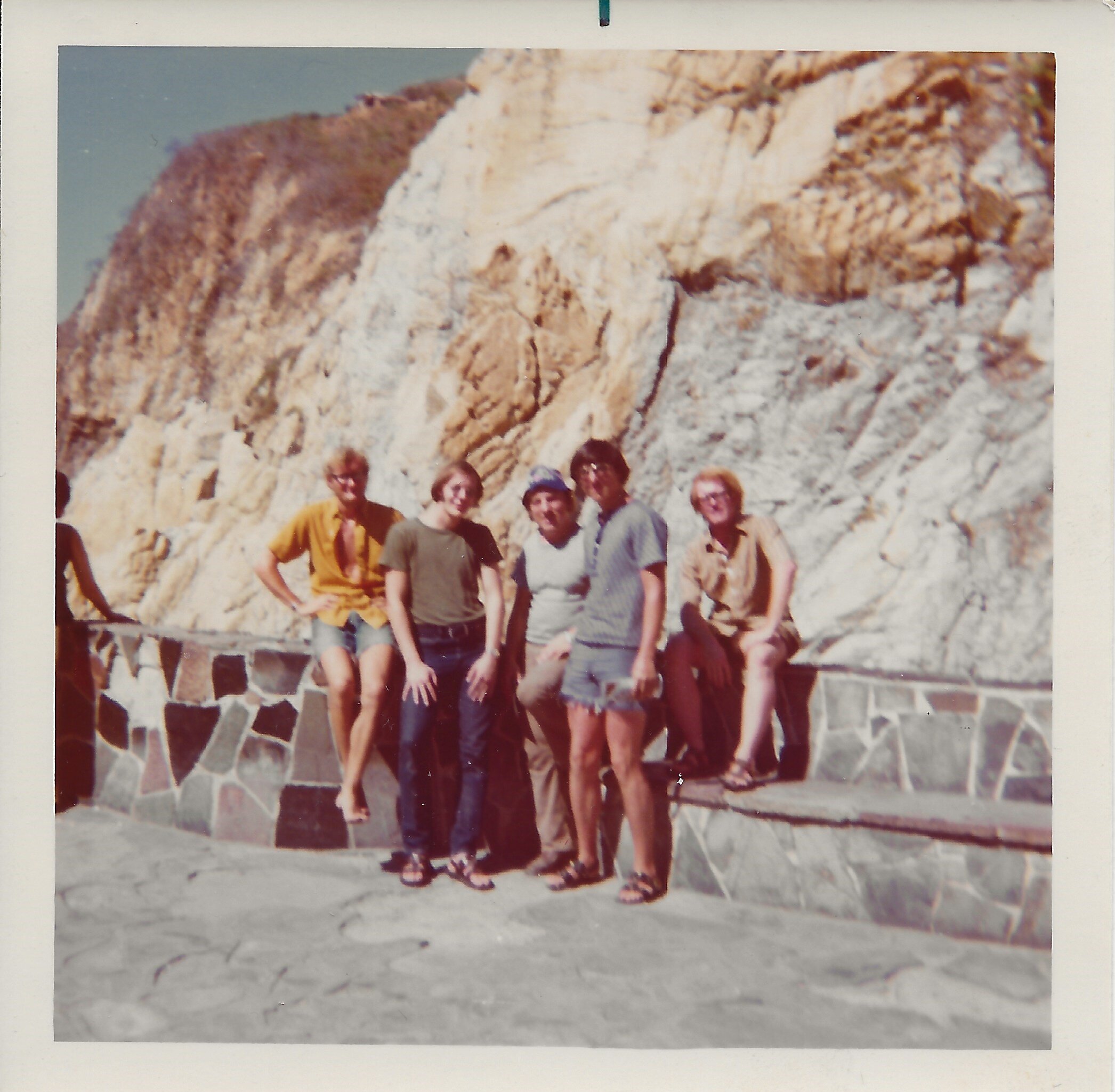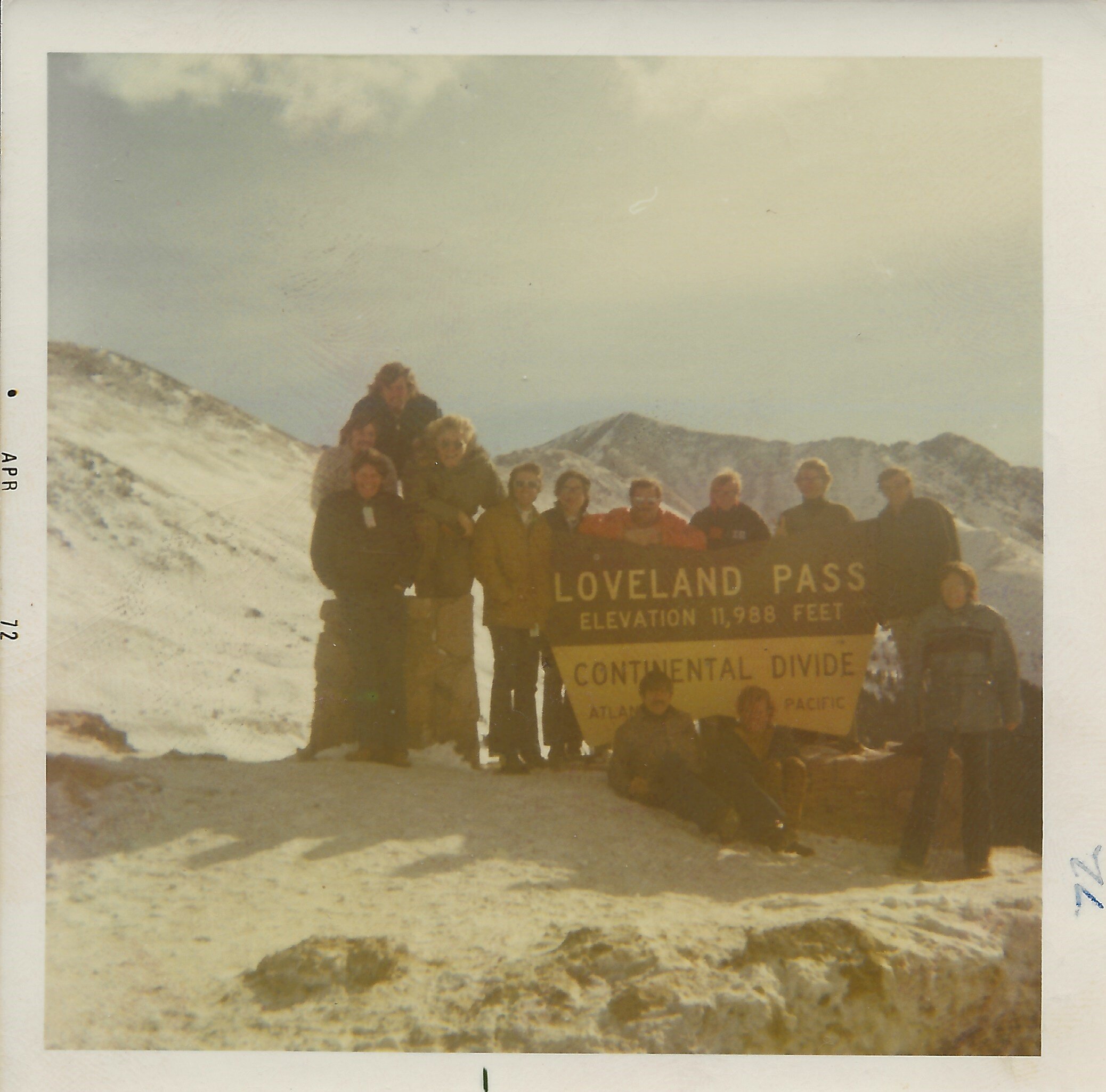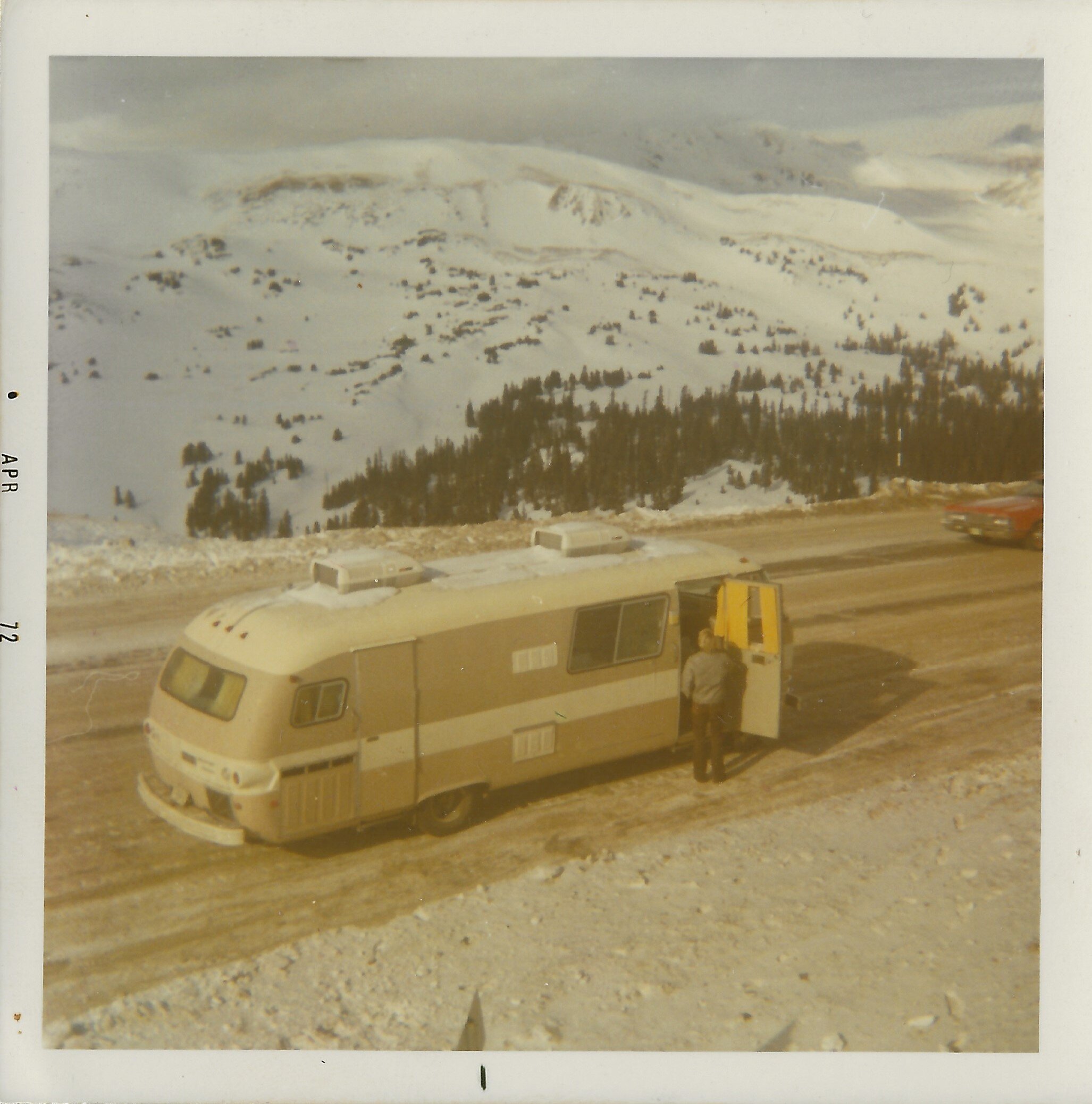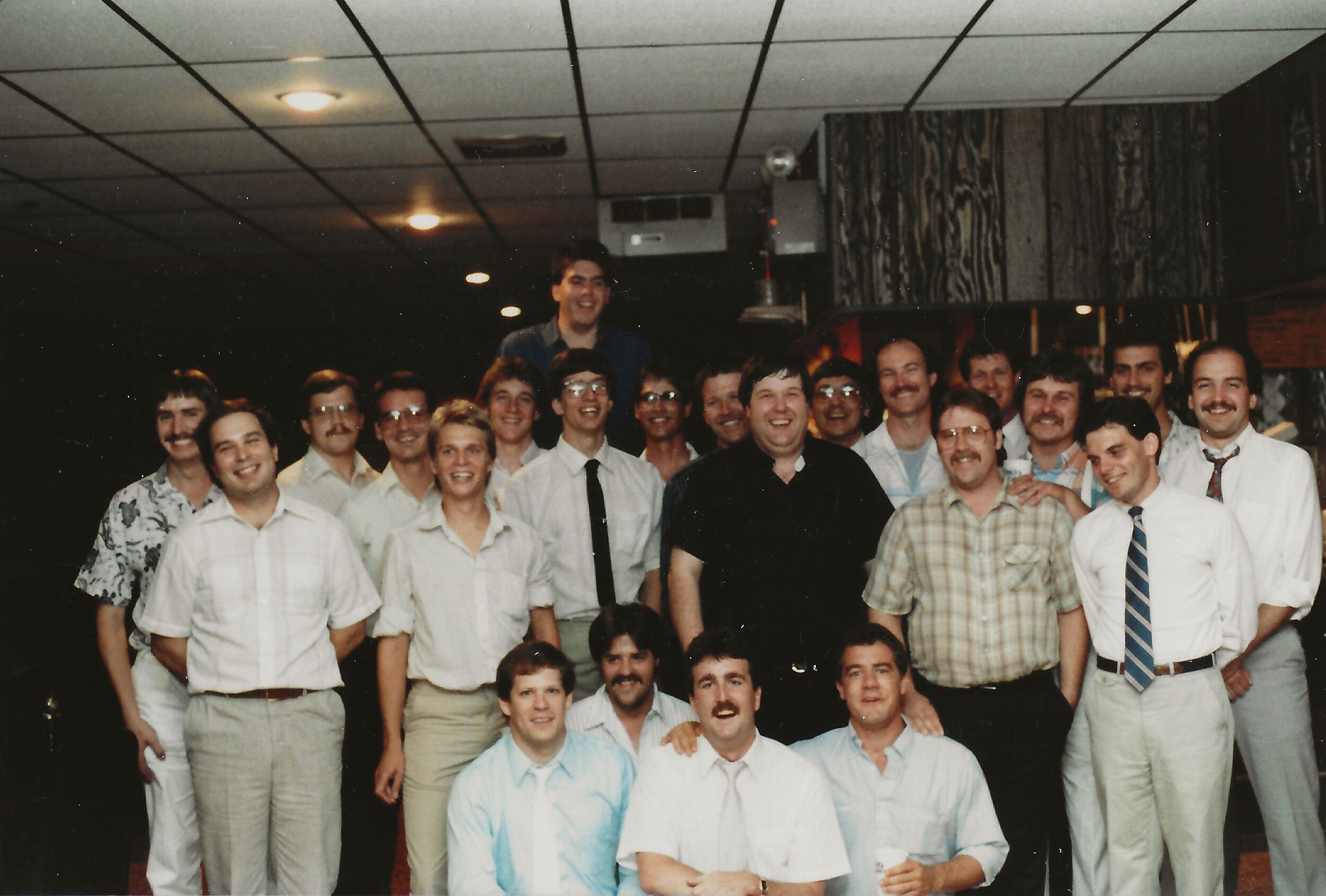Sigma Pi Alumni Spotlight - Corey & Dennis Conohan
Written by: Garrison Ledbury - 8/30/21
The influence of Sigma Pi can start young, as it did in the case of brother Dennis Conohan (Epsilon Class, ‘71) and his son, brother Corey Conohan (Gamma Epsilon Class, ‘06). With Corey as a legacy, this father and son duo have fond memories of watching UW-Platteville’s homecoming parades together in front of the chapter house. Interacting with brothers at such a young age inspired Corey to pursue pledging Sigma Pi during his first semester of college. As it had been in Dennis’ time, the Conohans would find themselves both involved in critical moments in Sigma Pi Delta-Iota’s history.
Dennis worked with his brothers to secure the chapter house in the early 1970s after buying it from one of Platteville’s original families, the Melchers. As only the third owner of the house, the Sigma Pi brothers including Dennis ensured that the $40,000 owed to fully inherit the house would be paid in full, establishing the home for hundreds of future Sigma Pis. Later, Corey and his brothers were instrumental in saving the chapter in the mid-2000s when Sigma Pi faced a dwindling active roster and was at risk of closing its doors after over 40 years. With sheer determination and teamwork, Corey and his brothers would bring in over 20 pledges in less than a year. The Conohan’s successes as a family of Sigma Pis shows that the fraternal experience can have a deep impact on brothers from vastly different generations.
Dennis currently lives in Cross Plains, WI with his wife, Jeanne where they spend retirement volunteering in their local community. Corey lives in Fitchburg, WI with his wife Tricia and their two children, Evan (4) and Nora (1).
What was your first job out of college? What are you doing now?
Dennis: I graduated with a degree in Industrial Education, but my first job was as a Drafter/Designer at Ray O Vac for 8 years in Madison, where I met my wife. I decided to continue my education at UW-Madison and pursue a degree in Mechanical Engineering. I then worked at Springs Industries in Middleton. After that I went to Alkar in Lodi, Wisconsin where I worked on food processing equipment for the industrial market. I became the Director of Engineering and worked on machine automation for cooking and chilling food products such as ham, hot dogs, pepperoni, chicken, luncheon meat, etc. That job allowed me to travel to every continent and many countries such as Russia, China, Australia, and other countries in Europe, South and Central America, Africa and Southeast Asia. Jeanne and I took a cruise including a trip to Antarctica as well. I retired a little over a year ago after 28 years of working at Alkar, and I am enjoying my free time; I can finally work on things I want to work on.
Corey: I graduated with a degree in Business Administration with an emphasis in Supply Chain Management. My first job out of college was for General Electric in Waukesha in their gas engine division as an Inventory Control Leader. I mapped out processes and consolidated inventory into Kanbans for engines that were several times the size of a person. That job gave me one view of working in the supply chain world. I then went on to be a Buyer for a plastics company called Placon. I buy plastic bottles from around the area which we then turn into flake. These are then put through an extrusion process to make the plastic material into sheet. Lastly, we turn them into thermoform plastic products that go back into making retail food packaging and medical supplies. I have been managing the current processes of the company and have been working to make them more efficient while keeping costs low and in line. I’m glad I was able to find a job in my field because I know how tough that can be to find something like that right out of the gate. I feel like Platteville did a good job of preparing us in practical ways. They emphasized teaching us on the types of situations we would encounter in our field. It really made us feel like we could step right into the workforce.
What made you want to join Sigma Pi?
Dennis: At that time, the fraternity had just purchased the house on 555 W Main Street. To have that nice big house was a plus. The chapter was much more open and social than other groups and it was nice to have friends like that who could be so outgoing and social. Participating in events like homecoming with the fraternity taught me that this was part of the college experience. Corey made it to many of the homecoming parades, too; I would carry him on my shoulders as we watched the floats go by. He’d run around the house and interact with the actives. Even though Corey eventually went to UW-Platteville and joined Sigma Pi, my wife and I never told him where to go to school or what to do. I think he chose Platteville because of the memories he had there as a child growing up around the chapter.
Corey: I had not been to the house during the previous 4-5 years before I went to Platteville. When I started at the college I remember the first freshman weekend of the semester. I had met some friends through the dorms and we decided to take a walk by the Sigma Pi house. I decided to walk up and knock on the door. Tim McGlinn answered the door and didn't look too impressed by me. He said that there wasn't anything going on in the house but then Chad Hoftender came around the corner and told us to come in. Even though they were messing with me they were super welcoming to my friends and I. I remember thinking to myself if I should bring up that my dad was an alumnus of the chapter. Regardless, I immediately started making friends with all the brothers I met that night. When you’re new to the area, especially in a college setting, it's nice to have that base where there is a group of different types of people to interact with. You felt like you could just keep talking with these people and get to know them as they got to know you. That was a wonderful feeling as a new student who was trying to find his place at the school. The fraternity gave me that place to belong and it is ultimately what made me want to join the fraternity.
What social and professional lessons/experiences did you encounter with your brothers that you think were the most impactful?
Dennis: It was always a positive social experience. Everything that was part of being in the chapter involved camaraderie between brothers. In my time, some of the brothers and I would go on roadtrips all across the country. Don Edgerton, John Papernik, Phil Johnsrud, Don Heins, Wally Walczak, and myself rented a Winnebago RV and went skiing one year in the Aspen Highlands and Buttermilk Ski Areas. The other big road trip I was involved with was with Don Heins, Doug Schluter, Phil Jonsrud, and Ben Steele. We drove 2400 miles from Platteville to Aculpulco, Mexico in 1973.
Professionally, it helped me a lot too. When we went through the process of buying the house we had to work with Mrs. Melcher, Eric Schultz - who is another one of our alumni - and the bank. It was around $40,000 to pay it down altogether. Staying fiscally responsible and paying down the debt taught me a lot as it was like running a small business. There was a lot of planning involved with everything we did. All of that responsibility really does pay off in the end when you apply that knowledge to the post-college world. I was also Sage during my time as an active. We worked to make sure all the bills were paid and did volunteer work like helping out at the nursing home. Working with the fraternity taught me how helping our community could develop us professionally as well. After college I started working with the Optimist Club in Cross Plains, World's Fair, Red Cross, and many church committees. I don't mind volunteering at all. I think part of that came from the fraternity. The social aspect of helping others encouraged me. It gave me fulfillment in the knowledge that I helped.
Corey: I remember telling my dad that I was thinking about joining and he told me that it would be a good thing to experience. He emphasized that I needed to keep school as a priority but that the fraternity would teach me study skills and habits that would help me succeed as a student. He also told me that I would need to learn how to balance everything I was getting into because it would be a lot of work. Just because Sigma Pi is a fraternity doesn't mean you can get away with not working hard for the chapter or your education. There are things you need to be ready to prioritize. The fraternity will help you in the end to grow as a person and develop time management but you need to learn how to balance school and the chapter. I remember there were some times during my pledging that made me wonder if I had the time or energy to keep up with everything. However, the longer you stick with it the more you grow into it. You learn how to prioritize your time. You don't notice it right away but the fraternity is teaching you time management and that ultimately is an incredibly valuable skill to have in the workforce. It also showed me how to get people to work together. You can see how a team mentality is so much more beneficial than one person taking on everything. You can move mountains when you learn how to get everyone on the same page and strive towards a common goal.
In my career, my boss at GE was a Sigma Pi who went to Western Michigan. As we worked together we began to make references to the fraternity and that allowed me to make that professional connection. There are a lot of people in upper management everywhere who have been through the Greek experience. When an employer is looking to hire one of two equal candidates for a position, if you have that extra skill set from Greek Life, that employer will know that you have that ability to work with others. My boss recognized my fraternity-honed ability to communicate well with my coworkers.
I was Herald and Second Counselor. Professionally, it made me feel like I was part of shaping the fraternity’s future. When we were down to seven brothers from 2007-2008, it reinforced my work ethic and desire to help out to keep the chapter going. It taught me to think of the fraternity as a team and how my actions would benefit the whole group. I carried that mentality into the workplace.
What advice would you give someone who is looking at joining our chapter? What can they expect?
Dennis: I would say that there is more to college than just academics. It is also about experiencing college in an excellent light. It takes a person from being very young and matures them into a person who can do well for their work and society. On the other hand, once a brother graduates, the chapter is a way to bring them back to the school. The chapter is always there. The fraternity gives us a reason to call Platteville home and to say that it made us who we became.
Corey: Be prepared to work but also be prepared to see what you put in multiply. It is going to be challenging, but think of it as another class in a sense. You have to look at the fraternity as more than just a place to mess around. While you are not getting graded, you only get out what you put into this place. If you put in next to nothing, you probably won't get much out of it, but if you are constantly putting in the work, you will get more out of it in the end. Thats the amazing thing about the chapter, you don't get a chance to develop that strongly that early in life always. You are building something bigger than yourselves. In the end you and your brothers will be proud of what you all achieved together. That feeling of lineage, history, and being part of something bigger than just being a student for four or five years will have an impact on you. You’re there for that small amount of time but Sigma Pi is a lifelong experience. You find that more and more as you get older. It can be stressful as an active but if you push through it, you will find it will benefit you immensely because real life is tough and you're going to have to find those balances. The fraternity prepares you for that.
After making one of the largest donations to our house renovation fund yet, what inspired you to donate?
Dennis: I think it has partly to do with the fact that I was part of the group that was paying down the house originally. I believe the house is the fraternity. That house is, without a doubt, the best fraternity house on campus. It is a landmark with history in it. To donate to a cause like that is well worth every penny. I will probably donate again and I encourage anyone else who has the means to donate as well. It is a house that has always needed repairs, even in my time, but it has stood the test of time regardless. I’ve always felt welcomed back whenever I would visit, even as an old gray-haired guy. I feel I can easily walk up the steps to the house whenever I want and feel like I am home.
Corey: At the end of the day, when you think about the fraternity your mind immediately goes to the house. Finding and working to fix all the issues with the house is a testament to the brothers who take on the task of keeping up our home. Even as an alumnus, the same rules still apply as when we were actives. Alumni should find ways to help where they can and carve out time to put in work for the chapter whether that be donating or just lending the actives a hand.
Know a Sigma Pi Delta-Iota alumnus who you think deserves a spotlight? Send an email to the Communications Committee at spdicommunications@gmail.com detailing the alumnus and why they should get a spotlight.





